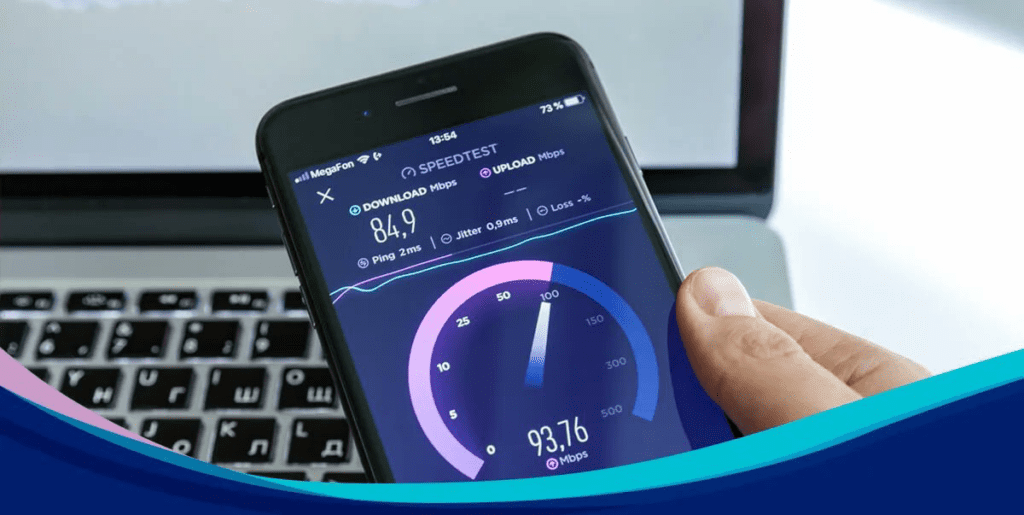Nigeria has been ranked 7th in Sub-Saharan Africa for internet speed, according to the Worldwide Broadband Speed League 2024 report released by Cable.co.uk.
The report, which collated and analysed over 1.5 billion speed tests from around the world over a 12-month period ending June 30, 2024, provides a comprehensive overview of internet speeds in 229 countries.
Nigeria recorded an average download speed of 27.62 Mbps, placing it 132nd globally, a slight improvement from its 133rd position in 2023.
Nigeria’s Position in Sub-Saharan Africa
In the context of Sub-Saharan Africa, Nigeria’s 7th place position in broadband speed tells us of the existing challenges in improving internet infrastructure and accessibility.
The top-performing country in this region is Réunion, with an average download speed of 63.29 Mbps. South Africa follows with 42.42 Mbps, Eswatini with 37.23 Mbps, Rwanda with 32.69 Mbps, Mauritius with 31.12 Mbps, and Botswana with 29.52 Mbps. These countries have set benchmarks that Nigeria aims to reach as it continues to develop its digital infrastructure.
Global Context and Comparisons
Globally, the countries with the fastest internet speeds are predominantly from Europe and parts of Asia. Iceland tops the list with an astounding average speed of 279.55 Mbps, moving up from fourth place last year due to its exceptional full fiber penetration, which provides at least 100 Mbps to 99.9% of its population.
Jersey, which was the first jurisdiction to make pure fiber available to every broadband user, follows closely with 273.51 Mbps. Macau maintains its third-place position with 234.74 Mbps, while Liechtenstein, where 99% of the population are internet users, holds the fourth spot with 222.98 Mbps. Denmark rounds out the top five with an average speed of 210.51 Mbps.
Regional Averages and Insights
The report also provides a detailed analysis of internet speed across different global regions. Western Europe leads with an average speed of 141.12 Mbps, driven by countries like Iceland, Jersey, and Liechtenstein.
The Baltics, with an average speed of 106.45 Mbps, also perform exceptionally well, with Estonia, Lithuania, and Latvia all featuring in the top 50. Northern America, with an average speed of 104.18 Mbps, sees the United States and Canada leading the way, while regions like the Near East (50.27 Mbps) and Central America (41.39 Mbps) show moderate performance.
Sub-Saharan Africa, with an average speed of 14.99 Mbps, is the second slowest region globally, ahead of only Northern Africa, which averages 12.52 Mbps. This highlights the huge disparity in internet speeds and the ongoing challenges faced by many African nations in upgrading their digital infrastructure.
Advertisements
Detailed Analysis of Nigeria’s Broadband Performance
Nigeria’s broadband speed of 27.62 Mbps, while improving, still shows the broader challenges of internet connectivity in the region. With 163,703 unique IPs tested and a total of 3,007,669 tests conducted, the data indicates a growing but still nascent digital infrastructure.
Downloading a 5GB movie in Nigeria would take approximately 12 hours and 24 minutes, a stark contrast to the mere minutes it would take in top-ranking countries.
This slow internet speed in Nigeria affects not only individual users but also businesses and educational institutions that rely heavily on the internet for daily operations.
The need for faster and more reliable internet is important for Nigeria’s economic growth, as digital connectivity plays a key role in various sectors, including finance, healthcare, education, and entertainment.
The report’s findings points to the importance of continued investment in broadband infrastructure to bridge the digital divide.
For Nigeria, improving its ranking will require huge efforts from both the government and private sector. Initiatives to expand fiber optic networks, enhance mobile broadband services, and increase the affordability of internet access are essential steps towards achieving this goal.
Although Nigeria’s improved ranking in the 2024 Worldwide Broadband Speed League is a positive sign, there is still a long way to go to match the speeds enjoyed by top-performing countries.
Addressing the infrastructural challenges and investing in digital technologies will be essential for Nigeria to enhance its internet speeds, foster economic development, and improve the quality of life for its citizens.
Advertisements
Source link : https://techeconomy.ng/nigeria-ranks-7th-in-sub-saharan-africa-for-internet-speed-132nd-globally/
Author :
Publish date : 2024-07-17 10:31:09
Copyright for syndicated content belongs to the linked Source.
